
Entrepreneur Le Truong Son was at 12th Overseas Vietnamese Business Conference in Europe
Dr. Yen Platz: Participating in the 12th Overseas Vietnamese Business Conference in Europe (from September 29th to October 1st, 2023, in Budapest, Hungary) as a Member of the Executive Delegation and President of the Vietnam Business Association in Russia, you and the leaders of the Overseas Vietnamese Business Association in Europe presented what policies and strategies for cooperation and fostering the development of the bloc of Vietnamese businesses in Europe and worldwide?
Entrepreneur Le Truong Son: As Vietnamese living and working in other countries, we are constantly committed to preserving our national identity and fostering and growing the intelligence and essence of the Vietnamese community in order to promote our own careers, families, and society. It is always necessary to connect the Vietnamese community abroad. As a result, we frequently have forums like these. Given the economic and political shifts and volatility, this year's forum is also highly timely. Many stories need to be shared and proposed to all members of the business sector and the Vietnamese community in Europe. We intend to stand united, collaborate, and work together, as well as consider a more inventive and practical strategy. We also review the happenings of the previous year and what needs to be done in the near future.
To begin, the European Overseas Vietnamese Business Association’s leadership structure and operations will be refined. Second, to promote the growth of the young entrepreneur club. Third, to strengthen ties and collaboration among Vietnamese firms in Europe and around the world.
Dr. Yen Platz: Returning to the "7th Eastern Economic Forum" conducted a year ago (on September 6, 2022) in Vladivostok, Russia, which notably included a discussion session named "Russia-Vietnam Business Dialogue" intended at fostering trade cooperation between Russia and Vietnam. What practical changes have you noticed as one of the primary presenters at that forum up to this point?
Entrepreneur Le Truong Son: We have seen recently that enterprises involved in trade between Russia and Vietnam have experienced several hurdles. However, some extremely positive changes have occurred. First and foremost, the transport infrastructure between Russia and Vietnam has been repaired. Shipments from Hai Phong Port and Saigon have arrived in Vladivostok via direct train connections. Transportation was nearly at a standstill over a year ago, and there were no direct routes accessible. Secondly, there is always an opportunity in any crisis. As we frequently say, if someone takes a step back and we can remain solid, that is progress. In the business sector, we frequently use such language (laughs). Thirdly, when suppliers from non-friendly countries exit the Russian market, our market share inevitably grows. The Russians still have a lot of purchasing power. Therefore, Vietnamese goods in particular segments continue to do exceptionally well in the market."

Entrepreneur Duong Chi Kien, Dr. Yen Platz, and Entrepreneur Le Truong Son from left to right
Dr. Yen Platz: Conferences like the aforementioned economic forums, as well as many others like them, have increased exchange and mutual understanding among policymakers, association leaders, businesses, and entrepreneurs. Wouldn't you agree that this has made all concerned parties' activities more practical, deeper, and ultimately more effective?
Entrepreneur Le Truong Son: Absolutely! These platforms enable us to exchange perspectives, address issues, and find benefits in order to create the most harmonious solutions among all participants. This is critical throughout the entire macroeconomic policy implementation process, involving policymakers, enterprises, and key stakeholders.
Dr. Yen Platz: Some European economic experts argue that the longevity of many long-standing private/family businesses in Europe that have survived for centuries can be attributed to their focus on three pillars: business (traditional experience), scientific research (a solid scientific foundation), and media (cross-sectoral culture). This enables these companies to maintain product quality, retain loyal customers, and expand their brands in a sustainable manner. However, upon observation and examination, it is clear that most Vietnamese businesses, and Vietnamese-owned enterprises in general, have done little or have not done so systematically. What are your opinions about that?
Entrepreneur Le Truong Son:I believe that declaring 'not having accomplished this' does not mean that businesses do not understand the fundamental ideas. Concerning terms like 'not having done' or 'unable to do,' I respectfully disagree. Because, in some ways, Vietnamese firms have been focusing on connecting traditional experiences and transmitting information to their clients, both current and prospective. Of course, as previously said, Vietnamese enterprises operate in a very different historical environment with drastically different execution methods. So we believe we are still on that path, albeit via various routes.
Dr. Yen Platz: Your argument is entirely valid. However, we haven't seen many Vietnamese enterprises that have survived a century, nor have they paid close attention to linking the three important pillars outlined before. Meanwhile, this has been a critical survival concern for European enterprises for decades.
Entrepreneur Le Truong Son: I see what you're saying. In that instance, a more accurate assessment approach based on business age and development stages is required. The evaluation approach will be more explicit and unambiguous as a result. As a customer, I have noticed the following:
To begin with, Vietnam has brands that are nearly a century old, such as the Co Ba Soap brand, which dates back to the French colonial time. This brand is currently being revitalised in Vietnam's Mekong Delta provinces. They are expanding their product ranges beyond the Co Ba soap.
Second, in terms of whether businesses are related to science and media outlets, I believe that businesses are, to some extent, using these two extremely effective drivers. It's just that they do so in different ways and to varying degrees. Many significant firms in Vietnam now have communication departments, brand research and market analysis departments, as well as science and technology research and development.
Dr. Yen Platz: According to international economic experts, certain corporate communities residing abroad, such as those from Japan, China, and Israel, have developed a strong and cohesive alliance. Local firms are sometimes unable to compete or break through their dominance. How, in your opinion, can the Vietnamese business community around the world achieve such success and unity?
Entrepreneur Le Truong Son: I feel that history has demonstrated the effectiveness of Vietnamese diaspora solidarity and community linkages, particularly in socialist nations in the past. I can give you an example: the successful retail model of Vietnamese marketplaces in socialist countries. This demonstrates a similarity in togetherness to communities in China, South Korea, Japan, or Israel. The Vietnamese community has a similar level of cohesiveness. However, the breadth, content, and segments of these business communities may differ. Nonetheless, I believe in the Vietnamese diaspora's connectivity, solidarity, and common values. We are constantly working and striving for advancement. I am certain that the Vietnamese business community will find a position that is equal to or greater than that of other business blocs. Vietnamese businesses will stand shoulder to shoulder with our country's expanding prestige.
Dr. Yen Platz: Allow me to share this, and I apologise if I offend anyone. Previously, we noted that similar things were priced the same across multiple vendors during shopping trips to Chinese or Israeli markets abroad. There was no pricing war or undercutting among sellers. However, it appears to be different in Vietnamese markets outside of Vietnam. Wouldn't you agree that this could be interpreted as a lack of unity?
Entrepreneur Le Truong Son: As you noted, this can be regarded as a lack of unity. However, from another angle, it could just be the method of distribution for those items. It means that these products can only be offered within a certain price range, and retail enterprises can set their own profit margins. On the contrary, as far as I am aware, Chinese enterprises frequently have established rates for distributors, and retail prices from manufacturers are relatively upfront and obvious. I believe that judging unity entirely on this criterion may be inappropriate.
Dr. Yen Platz: Do business groups ever think about adopting rules and regulations to ensure harmony in business operations in overseas markets?
Entrepreneur Le Truong Son: Yes, such stories have been told in the corporate communities of Eastern European countries. For example, we always have a very clear price agreement for a specific product. There is no situation in which one seller sells too cheaply while another sells too expensively.
Dr. Yen Platz: The conflict between Russia and Ukraine has weakened the economies of not only both countries but also the globe. Many people believe that Russian firms in general and the Vietnamese Business Association in Russia in particular will be able to sustain themselves through their internal skills. What are your thoughts on this issue as the President of the Vietnamese Business Association in Russia and the President of the Board of Directors of INCENTRA/Multipurpose Complex Hanoi-Moscow?
Entrepreneur Le Truong Son: We believe that this war will last for a long time. The media has informed us about the underlying reasons for this problem, which is quite upsetting. Clearly, the current global economic situation, as you indicated, affects not just Russia's economy but also Europe, resulting in inflation and rising prices. In my opinion, Russia's inflation rate is lower than that of Europe. Any comparison, however, is relative. Currently, the Asian goods market segment, particularly Vietnamese items, is very popular in Russia. The Russian market remains appealing and welcoming to Vietnamese firms. What exactly are we doing? I'll answer your question directly: We're working hard to protect and strengthen what we have, manage, and operate. At the moment, that is our primary goal. Any crises, including economic downturns, will eventually resolve. We must have the strength, perception, and potential to continue developing at that moment.
Dr. Yen Platz: Which areas, in your opinion, should Vietnamese entrepreneurs in Russia focus on investing in during this era and after the crisis between the two nations has ended?
Entrepreneur Le Truong Son: The first and most important issue, whether the economy is in recession or recovery, is, in my opinion, how to develop a complete distribution and product marketing system. Vietnamese goods are featured in this. As I previously stated, Vietnamese goods are in high demand on this market, and Russia and Vietnam have a Free Trade Agreement (FTA), which allows Vietnamese goods to enter the market duty-free. The Vietnamese community and enterprises distributing items in this market are currently flourishing. Traditional handicrafts, consumer goods, natural ingredient-based cosmetics, and agricultural and aquatic items, for example, are gaining popularity. Russia is a major supplier of minerals and raw materials, but it imports all consumer items. Therefore, companies should invest in production and processing. This is an area that investors may want to look at in the near future.
Dr. Yen Platz: How has the Vietnamese Business Association in Russia collaborated with local Russian businesses?
Entrepreneur Le Truong Son: We continue to work quite effectively with our Russian counterparts. We, too, are Russian-registered firms. Even business formats such as markets exist and pay taxes to the Russian government.
Dr. Yen Platz: According to our understanding, the Hanoi-Moscow Multifunctional Complex is a joint initiative between Vietnam and Russia. Isn't it more than simply a large-scale, high-standard commercial hub, a residence for many Vietnamese firms, but also an intersection merging with the host country's economy and culture?
Entrepreneur Le Truong Son: Market demands have forced us to modify our current business model. This model has been customised to fulfil the needs of consumers. However, several segments dispersed through traditional market models continue to contract on a daily basis. Following the current epidemic, we may see internet distribution platforms and marketplaces growing and acquiring substantial market traction. I want to emphasise that this is a supply-and-demand situation. In reality, the Hanoi-Moscow Multifunctional Complex not only serves as a meeting place for the Vietnamese community in Russia’s capital, where various Vietnamese brands converge, but also as a destination for Eastern cultural space and cuisine for both locals and international visitors.
Dr. Yen Platz: Thank you for this meaningful conversation. If there's anything else you'd like to share or discuss, please feel free to do so.
Entrepreneur Le Truong Son: I only have one sentiment to share: as Vietnamese people, no matter where we are or what we do, we always return to our hometown. We are steadfast in our stance that we must retain our national identity. Because our community's identity and knowledge are the heart, the fire that keeps our spirit and willpower warm in all areas of endeavour, whether in business, science, culture, or the arts.
At this time, I'd like to extend my best wishes to the Vietnamese community around the world! We hope and desire that the young generation of Vietnamese who have become global citizens will continually try and work hard to achieve many new successes and reach greater heights! We hope you will always preserve the essence of our tradition so that other countries see Vietnam as a powerful, sophisticated nation that knows how to deal with the global world as friends.
Thank you very much!
Budapest, 2/10/2023
Dr Yen Platz (Representative of WAJ at the UN in Vienna)
PROMOTED
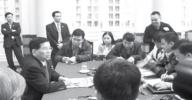
Culture is the key to everything. Culture, after all, governs all areas. In my opinion, our resistance against foreign invaders, after all, culture has decided everything: will, stubborn tradition, national solidarity.
Dr. Yen Platz- Young translator conquers the ancient Greek classic Anabasis – Memoir of the Persian Expedition
- Austria news - Usama Nosshy channel covers Asean's 55th anniversary celebrations at the United Nations in Vienna
- VietnamPlus Newspaper reported about ASEAN's 55th anniversary at the United Nations in Vienna
MOST VIEWED
-
1
AUSTRIA – VIETNAM: UNDERSTANDING THE VALUE OF PEACE

-
2
A unique educational experience.. Reading a story to children in four languages

-
3
Sean doyle ambassador: european and vietnam culture connector

-
4
Musician Jürgen Buch expressed: “I hope Vietnamese music will spread around the world”

-
5
Dr. Phan Van Kien: Light and Cultural Diplomacy

The two Kings Philippe and Van der Bellen havedifferent backgrounds, one is of royal origin, and the other is a child of a refugee family (once of noble origin) but now, in the eyes of the European public, both of them are giving off a sense of courtesy, virtue and erudition.
WAJWith the attendance of many international figures, the 80th anniversary of the end of World War II was celebrated at the United Nations headquarters.
Journalist Usama Soliman

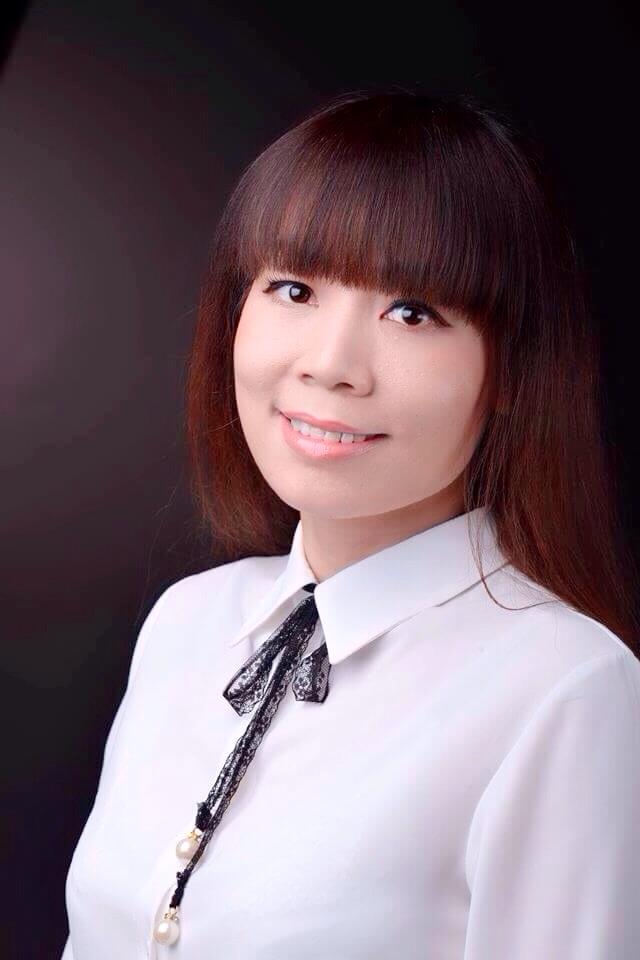

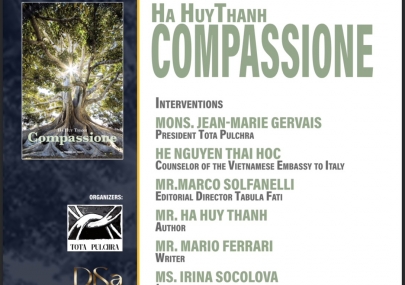
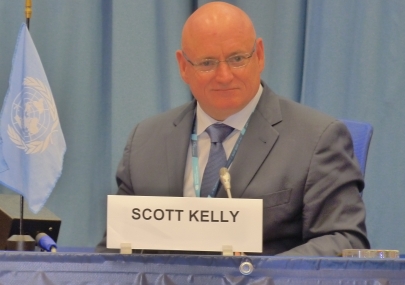
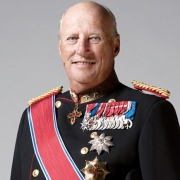
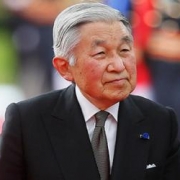







Comment